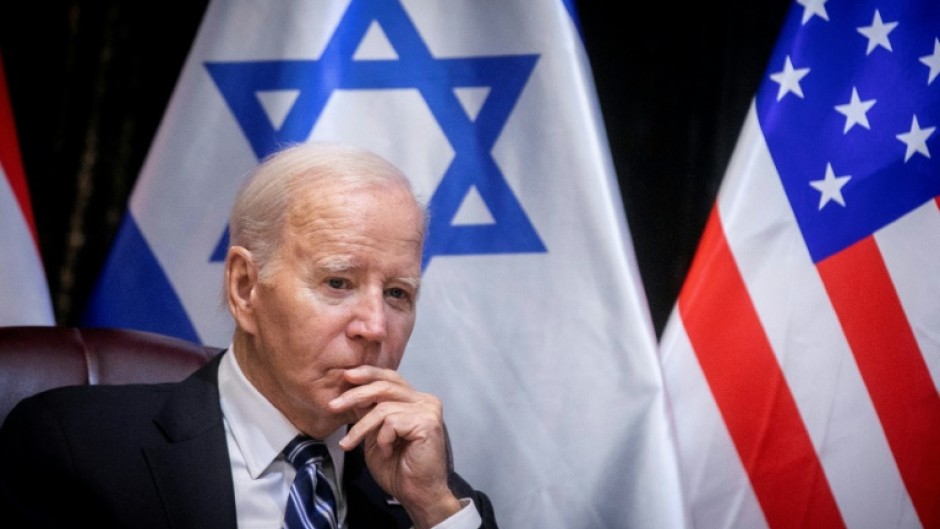BEIJING - Asian markets tumbled on fears the Israel-Hamas crisis would spill over into a wider conflict in the Middle East, with some warning that a full-blown war was increasingly likely.
With Benjamin Netanyahu building up a huge force ahead of an expected land incursion into Gaza, Iran has warned of a possible pre-emptive strike and called for an oil embargo against Tel Aviv.
President Joe Biden was due to make a television address on the crisis later in the day, having delivered full US backing for Israel in person on Wednesday during a solidarity visit.
However, Jordanian King Abdullah II, Palestinian leader Mahmud Abbas and Egyptian President Abdel Fattah al-Sisi cancelled a meeting with Biden after a deadly strike on a hospital in Gaza.
The tragedy, which each side has blamed on the other -- with Biden backing Israel -- ratcheted up tensions and saw Lebanon's Iran-backed Hezbollah movement call for a "day of rage".
All three main indexes on Wall Street ended in the red, and Asia followed suit, with Hong Kong, Tokyo, Sydney, Seoul and Singapore more than one percent down.
There were also losses in Shanghai, Manila, Jakarta and Wellington.
"The window for a diplomatic off-ramp to avert a wider war in the Middle East appears to be closing," said RBC Capital Markets' Helima Croft.
"A regional crisis appears the most likely outcome, especially with Israel still seemingly committed to a ground offensive to crush Hamas."
The prospect of an all-out war pushed oil prices up Wednesday, though Washington's decision to suspend some sanctions on Venezuelan output tempered the gains and both contracts were slightly lower in Asian trade.
Risk aversion among traders was increased by concerns the Federal Reserve would hike interest rates again, or at least keep them elevated for an extended period.
That pushed US 10-year Treasury yields above 4.9 percent for the first time since 2007, fanning even more unease on trading floors, with focus turning to Fed boss Jerome Powell's speech later in the day at the Economic Club of New York.
That comes after New York Fed chief John Williams said borrowing costs would need to be kept restrictive "for some time" if the bank wanted to get inflation back to its two percent target.

